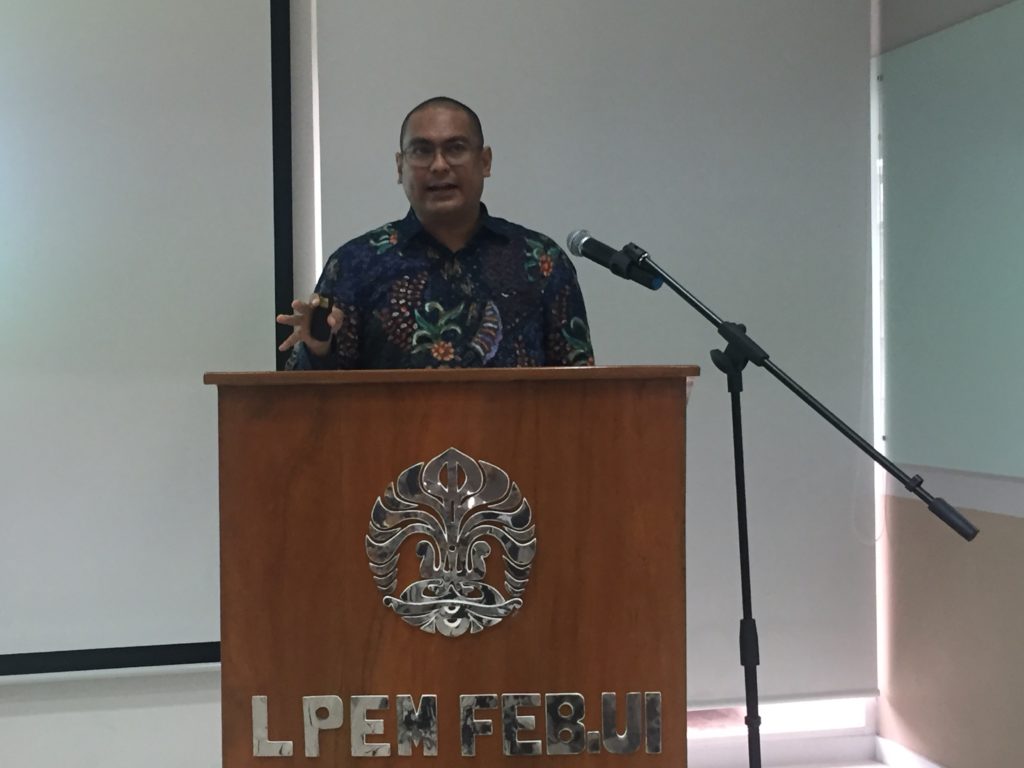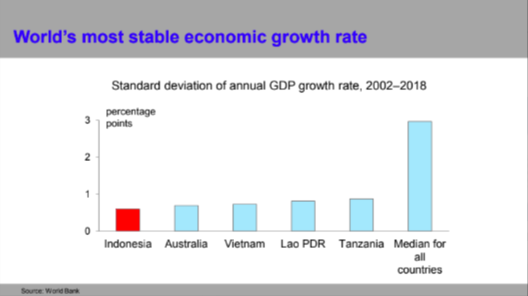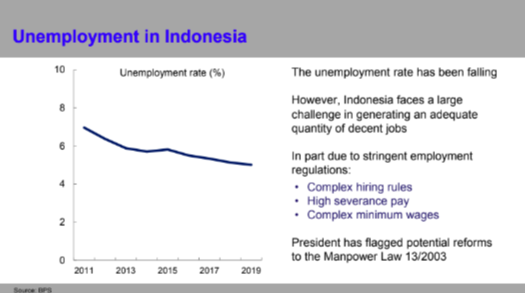President Joko Widodo has used the term ‘no one left behind’ to emphasize his administration’s commitment to pursue inclusive development. However, some marginalized groups are still at risk of being excluded from the process. On Tuesday, 12 November 2019, Martin Siyaranamual (Universitas Padjadjaran) presented a paper he co-authored with Paul Burke (The Australian National university) published in the Bulletin of Indonesian Economic Studies (BIES).
Martin started off by providing a big picture review of Indonesia’s macroeconomic conditions. The country has experienced uninterrupted economic growth since September 2017, making it the most stable economic growth in the world with a standard deviation of 0.6 percent. This stability is a result of the country’s relatively small trade exposure, diversity of products, political stability, and macroeconomic management as well as crisis risk mitigation. However, Indonesia also faces challenges, both external and internal. The US-China trade friction has caused a slowdown of growth momentum. The decline of commodity prices has also caused commodity exports to fall in 2019. Additionally, the government has also been struggling with its revenue collection to fund big spending development projects.
The move of Jakarta, the capital, is one of the biggest projects the government is planning. The move is motivated by the effort to decentralize Indonesia’s political and economic activities from Jakarta and Java. In addition, considering Jakarta’s long-standing issues (e.g. traffic congestion, air pollution, land subsidence, flooding), the government seeks for a city that would be livable for the long-term.
The government reported that the new capital would require a Rp 466 trillion investment from both the public and private sectors. Martin believes that this is a large underestimate of the actual requirement, as this number neglects the costs of traveling and displacing resources from other priorities & depleting natural resources. Regardless of the move, investment in Jakarta is still needed, for problems will remain unsolved. Indonesia has a long list of more compelling priorities than moving the capital.
Lastly, Martin discussed President Joko Widodo’s ‘no one left behind’ agenda. Firstly, in terms of electrification, Indonesia has had a considerable success in electrifying households since 2010, although blackouts are still common. Martin believes that Indonesia needs to go beyond electrification and push for the further broadening of clean cooking energy. Secondly, in terms of poverty, Indonesia has been successful in reducing the national poverty rate. However, persons with disability and the elderly are still much more likely to be poor. The poverty line also does not consider extra costs faced by these groups. Indonesia’s population is also aging, yet a big proportion of Indonesia’s elderly does not have access to a pension scheme, hence the high prevalence of people aged over 65 who are still working. Finally, in terms of unemployment, the government has yet to succeed in creating adequate quantities of decent jobs due to the stringent employment regulations. As a response, the President has come up with the pre-employment card which is planned to be rolled out in 2020. Overall, the government has taken its first steps in improving the social safety net for Indonesia’s citizen, but special attention still needs to be paid to marginalized groups.
For the complete presentation and Q&A session, please refer to the video and materials provided.







